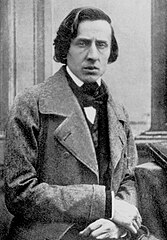Composers
03/1685 - 07/1750
Johann Sebastian Bach
Johann Sebastian Bach was a German composer and musician of the Baroque period. He enriched established German styles through his mastery of counterpoint, harmonic and motivic organisation, and his adaptation of rhythms, forms, and textures from abroad, particularly from Italy and France. Bach’s compositions include the Brandenburg Concertos, the Goldberg Variations, the Mass in B minor, two Passions, and over three hundred cantatas of which approximately two hundred survive. His music is revered for its technical command, artistic beauty, and intellectual depth.
01/1756 - 12/1791
Wolfgang Amadeus Mozart

Wolfgang Amadeus Mozart, baptised as Johannes Chrysostomus Wolfgangus Theophilus Mozart, was a prolific and influential composer of the Classical era.
12/1770 - 03/1827
Ludwig van Beethoven

Ludwig van Beethoven was a German composer and pianist. A crucial figure in the transition between the Classical and Romantic eras in Western art music, he remains one of the most famous and influential of all composers. His best-known compositions include 9 symphonies, 5 piano concertos, 1 violin concerto, 32 piano sonatas, 16 string quartets, his great Mass the Missa solemnis, and one opera, Fidelio.
03/1810 - 10/1849
Frédéric Chopin

Frédéric François Chopin, born Fryderyk Franciszek Chopin,[n 1] was a Polish composer and virtuoso pianist of the Romantic era who wrote primarily for the solo piano. He gained and has maintained renown worldwide as a leading musician of his era, whose “poetic genius was based on a professional technique that was without equal in his generation.” Chopin was born in what was then the Duchy of Warsaw and grew up in Warsaw, which in 1815 became part of Congress Poland. A child prodigy, he completed his musical education and composed his earlier works in Warsaw before leaving Poland at the age of 20, less than a month before the outbreak of the November 1830 Uprising.
10/1813 - 01/1901
Giuseppe Verdi
Giuseppe Fortunino Francesco Verdi was an Italian opera composer.
Verdi was born near Busseto to a provincial family of moderate means, and developed a musical education with the help of a local patron. Verdi came to dominate the Italian opera scene after the era of Bellini, Donizetti, and Rossini, whose works significantly influenced him, becoming one of the pre-eminent opera composers in history.
In his early operas, Verdi demonstrated a sympathy with the Risorgimento movement which sought the unification of Italy. He also participated briefly as an elected politician. The chorus “Va, pensiero” from his early opera Nabucco (1842), and similar choruses in later operas, were much in the spirit of the unification movement, and the composer himself became esteemed as a representative of these ideals. An intensely private person, Verdi however did not seek to ingratiate himself with popular movements and as he became professionally successful was able to reduce his operatic workload and sought to establish himself as a landowner in his native region. He surprised the musical world by returning, after his success with the opera Aida (1871), with three late masterpieces: his Requiem (1874), and the operas Otello (1887) and Falstaff (1893).
11/1840 - 11/1893
Pyotr Ilyich Tchaikovsky

Pyotr Ilyich Tchaikovsky, often anglicized as Peter Ilyich Tchaikovsky, was a Russian composer of the late-Romantic period, some of whose works are among the most popular music in the classical repertoire. He was the first Russian composer whose music made a lasting impression internationally, bolstered by his appearances as a guest conductor in Europe and the United States. Tchaikovsky was honored in 1884, by Emperor Alexander III, and awarded a lifetime pension.
04/1873 - 03/1943
Sergei Rachmaninoff

Sergei Vasilievich Rachmaninoff was a Russian virtuoso pianist, composer, and conductor of the late-Romantic period, some of whose works are among the most popular in the classical repertoire.